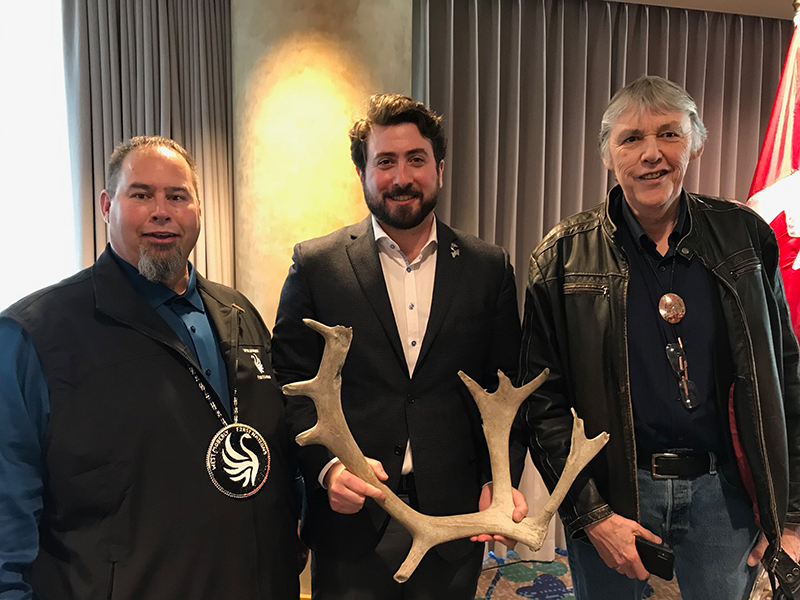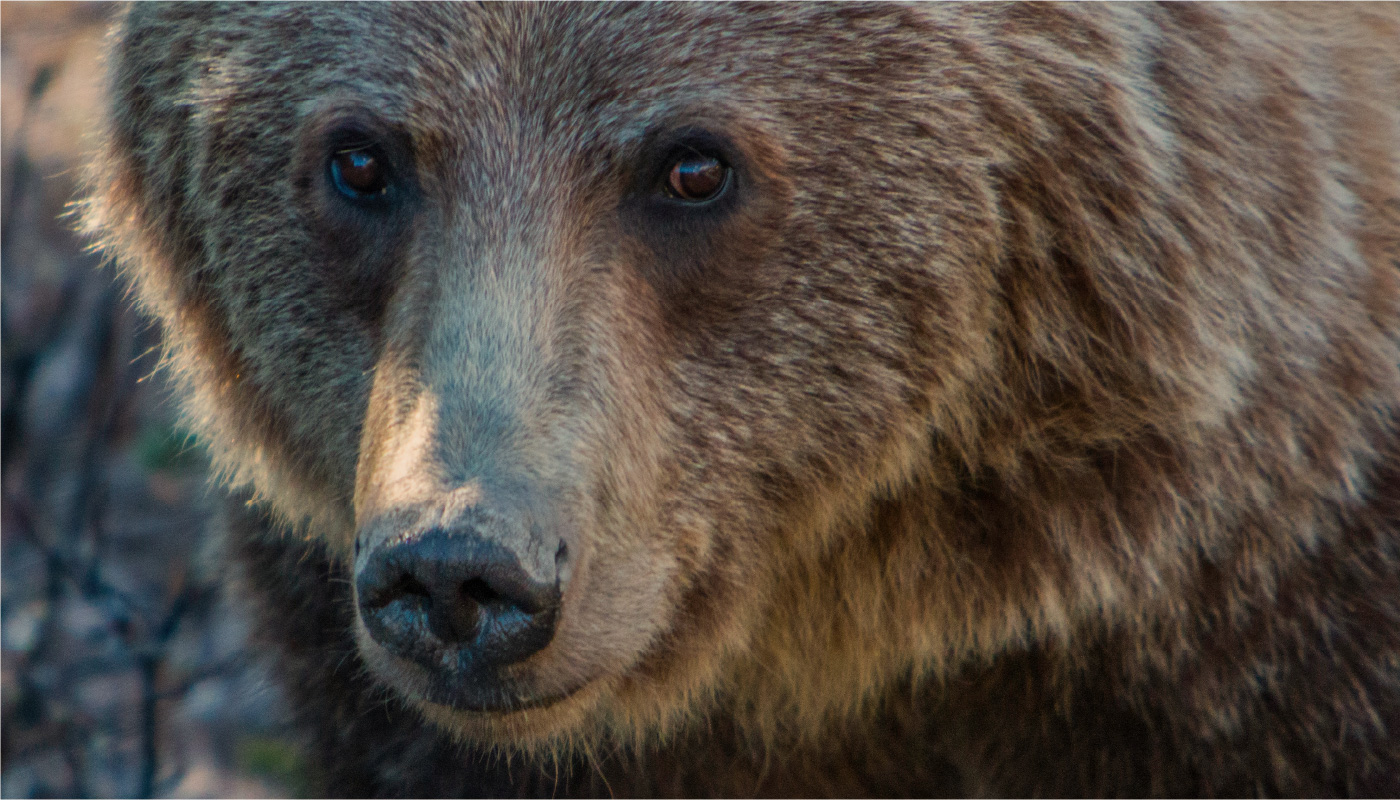Y2Y partners in Alberta and British Columbia leading efforts to protect sensitive species and landscapes are an inspiration to us all
Recently, the Y2Y team gathered online to celebrate and recognize several of our Indigenous partners who have worked tirelessly over the years to defend culturally significant landscapes and wildlife in the Yellowstone to Yukon region.
On December 14, we awarded one Ted Smith Award for Conservation Collaboration to West Moberly First Nations and Saulteau First Nations, and another to Latasha Calf Robe, Blood Tribe member and founder of the Niitsítapi Water Protectors.
Indigenous-led recovery efforts are saving mountain caribou
In response to the dramatic decline of caribou populations within their territories in the Peace Region, West Moberly First Nations and Saulteau First Nations came together to create a new vision for caribou recovery on the lands they have long stewarded.
Through a comprehensive program including maternal penning, habitat restoration, and land protection, the Nations have successfully reversed the local extinction of caribou and brought the herd from 16 animals in 2013 to an estimated 116 in 2021.
In 2020, the Nations were successful in securing a landmark conservation agreement with British Columbia and Canada. Together, they created B.C.’s third largest conservation area that protects habitat for caribou and other wildlife over 798,600 hectares (1,973,384 acres).

With successful short-term recovery efforts supporting a bold but achievable long-term vision, this Indigenous-led conservation initiative has set a path to recover caribou, protect large landscapes, and restore Treaty Rights.
During the virtual award presentation with Y2Y staff and other participants, Chief Roland Willson of West Moberly First Nations and former Chief Ken Cameron of Saulteau First Nations spoke of childhood memories of an abundance of caribou in the Klin-se-za (the Dunne-za word for ‘Twin Sisters’) mountains, the difficult journey leading to the partnership agreement and resulting challenges, and hope for future generations to live amongst caribou once again.
This is the most successful mountain caribou recovery initiative in the world, and Y2Y is grateful for the inspiring leadership and for this story of hope for people and wildlife!
Doing what’s needed to protect the sacredness of Aohkii (Water)
Over the past year and half, tens of thousands of voices have spoken out against proposed open-pit coal mining in Alberta’s mountains and foothills — also known as the Eastern Slopes.
The significant and largely irreversible impacts to water, land, wildlife and people have been echoed by many. One of the strongest and most impactful voices in this fight to protect this vital resource is that of the Niitsítapi Water Protectors (NWP), a grassroots Indigenous-led initiative started by Latasha Calf Robe of the Kainai Nation.

They are working to protect the environment and water within the traditional and treaty lands of the Blackfoot Confederacy. This territory includes Southern Alberta’s Oldman River watershed, where several mine projects are already in advanced phases of exploration and approvals.
Through sharing age-old Indigenous understandings on the reciprocal relationships existing between people and the natural world, the NWP have been integral in raising awareness of the threats posed by coal mining and inspiring action.
Since forming in late 2020, NWP has led on-reserve community awareness campaigns, lobbied provincial and federal governments (including a petition with over 18,000 signatures that was read in the Federal House of Commons), hosted and participated in numerous online webinars, and mobilized grassroots initiatives and gatherings — huge strides in the collective effort to stop all proposed open-pit coal mining in the mountains and foothills of Blackfoot Confederacy lands all along Alberta’s Eastern Slopes.
The tireless efforts of the Niitsítapi Water Protectors to voice the critical importance of intact landscapes for people and for wildlife, and to protect the waters that flow from the mountains, is a tremendous inspiration to Y2Y’s work. Working collectively towards shared goals exemplifies the spirit of the Ted Smith Award and we extend our gratitude for their energy and dedication.
This caliber of collaboration from West Moberly First Nations, Saulteau First Nations, the Niitsítapi Water Protectors and countless others has been more important than ever as the world faces climate change, biodiversity loss, and a health crisis.
Despite these challenges, these 2021 awardees endured and are making lasting change for people and wildlife. We couldn’t be more grateful to continue working alongside them.


